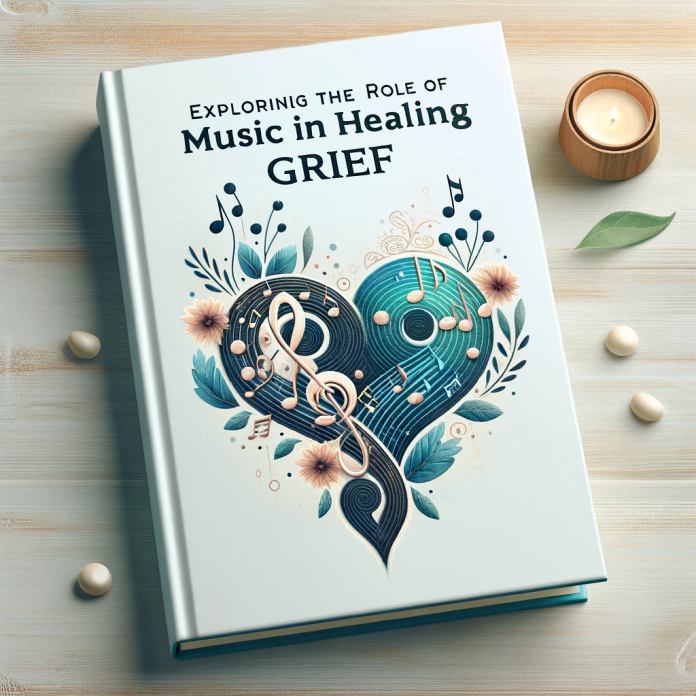Music, a universal language, has the power to evoke profound emotions and memories. It can uplift, inspire, and comfort us in times of sorrow. But can it help heal grief? This question has intrigued researchers, therapists, and those who have experienced loss. This exploration delves into the role of music in healing grief, offering insights from scientific studies, therapeutic approaches, and personal experiences.
The Science Behind Music and Emotion
Before we delve into the role of music in grief therapy, it's essential to understand the science behind music and emotion. Music's ability to evoke emotions is not just a subjective experience; it's a phenomenon backed by scientific research.
Music engages multiple brain regions, including those associated with emotions, memory, and reward. When we listen to music, our brain releases dopamine, a neurotransmitter associated with pleasure. This explains why music can uplift our mood and provide comfort during difficult times.
Music and Memory
Music's ability to evoke memories is another key factor in its therapeutic potential. The brain's auditory cortex, which processes sound, has direct connections to the hippocampus, a region crucial for memory formation. This connection allows music to trigger vivid recollections, which can be therapeutic for individuals dealing with grief.
Listening to a loved one's favorite song or a melody associated with a shared experience can bring back cherished memories. While this can initially intensify feelings of loss, it can also help individuals connect with their loved one's memory, fostering a sense of closeness and continuity.
Music Therapy for Grief
Given music's emotional and mnemonic power, it's no surprise that it has been incorporated into grief therapy. Music therapy, a clinical and evidence-based practice, uses music interventions to address physical, emotional, cognitive, and social needs of individuals.
For those dealing with grief, music therapy can provide a safe space to express and process their emotions. It can involve listening to music, creating music, singing, or even writing songs. The goal is not to produce a musical masterpiece, but to use music as a tool for healing and self-expression.
Benefits of Music Therapy
Research has shown that music therapy can have numerous benefits for individuals dealing with grief. It can reduce symptoms of depression and anxiety, improve mood, and enhance quality of life. It can also help individuals feel more connected to their loved ones, fostering a sense of continuity and presence.
Moreover, music therapy can provide a non-verbal outlet for expressing grief. For individuals who find it difficult to articulate their feelings, music can serve as a powerful medium of expression. Through music, they can convey their sorrow, longing, and even hope, facilitating their healing process.
Personal Experiences and Anecdotal Evidence
While scientific studies and clinical practices provide valuable insights, personal experiences and anecdotal evidence also underscore music's healing potential. Many individuals have shared how music has helped them navigate their grief journey, offering comfort, solace, and a sense of connection.
Some have found solace in listening to music that their loved ones enjoyed, finding it a way to feel close to them. Others have found comfort in creating music, using it as a medium to express their feelings and find catharsis. These personal experiences highlight the unique and deeply personal nature of music's role in healing grief.
Music as a Community in Grief
Music can also play a significant role in communal grieving. Shared musical experiences, such as concerts, memorial services, or even informal gatherings, can foster a sense of community and solidarity. They can provide a space for collective mourning and remembrance, helping individuals feel less alone in their grief.
Furthermore, music can serve as a bridge between the grieving individual and their support network. Shared musical experiences can facilitate communication and understanding, helping others empathize with the individual's grief and provide emotional support.
Conclusion
The role of music in healing grief is multifaceted and deeply personal. It can serve as a source of comfort, a medium of expression, a mnemonic tool, and a community builder. While grief is a universal experience, the way we navigate it is unique to each individual. For some, music may offer a path towards healing and growth.
Whether you're a therapist seeking to incorporate music into your practice, a researcher interested in this field, or someone dealing with grief, understanding the role of music in healing grief can offer valuable insights. It underscores the power of music not just as a form of entertainment, but as a tool for healing, connection, and growth.


-banner.png)





